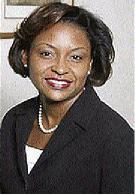
Mcgregor To answer this question, one must refer to the Constitution; the Representation of the People Act and the Fundamental Rights (Additional Provisions) (Interim) Act. The short answer is that every qualified person whose name appears on the list of electors is entitled to vote.
To qualify as a voter, a person must be at least 18 years of age and be:
a citizen of Jamaica residing in Jamaica at the date of registration; or
a Commonwealth citizen who has been a resident in Jamaica for at least 12 months immediately before, and at the date of, registration.
A person cannot be registered as a voter if that person:
is under a death sentence in any part of the Commonwealth or serving a sentence of imprisonment of at least six months;
has been convicted of any offence connected with the election of Members of Parliament or members of any local authority;
is legally certified to be insane, proved to be of unsound mind or is held as a criminal lunatic;
is disqualified by reason of the fact that he or she holds a post which is connected with elections in any constituency.
'One man, one vote, one time'

Having overcome the hurdle of qualifying to vote, electors must physically attend the designated polling station at which they are registered to vote and cast their vote by secret ballot usually between the hours of 7:00 a.m. and 5:00 p.m. Members of the armed forces cast their vote before other electors and special provisions allow persons who are unable to vote in the manner established by law (e.g. due to disability) to be assisted in the marking of the ballot.
Some registered voters may not be able to vote
Based on the requirements regarding the manner in which the vote is to be cast, some qualified persons may not, as a practical matter, be able to vote.Such persons may include:
Jamaican citizens residing overseas who may have been enumerated;
patients in hospitals or nursing homes;
prisoners who are serving terms of imprisonment of less than six months;
persons who have been remanded, pending trial.
The inability of those persons to exercise the right to vote arises because the present law makes no provision for voting in any place other than the designated polling division. The law does not permit a vote to be cast by proxy, by post or by a registered voter while overseas. Therefore, if qualified persons, whose names appear on the voters' list, are unable to attend their designated polling division on election day, they will be unable to cast their vote.
This is not the situation in many developed countries. For example, any person who was registered to vote in the United Kingdom within 15 years of the poll can register and vote in parliamentary elections while overseas. Such an elector may choose to vote by post or by proxy.
Perhaps these matters should be the subject of further amendments to the Representation of the People Act as we seek to improve the democratic process.
Sherry-Ann McGregor is partner and mediator with the firm Nunes, Scholefield, DeLeon & Co. Send feedback and questions to lawsofeve@yahoo.com or Lifestyle@gleanerjm.com
